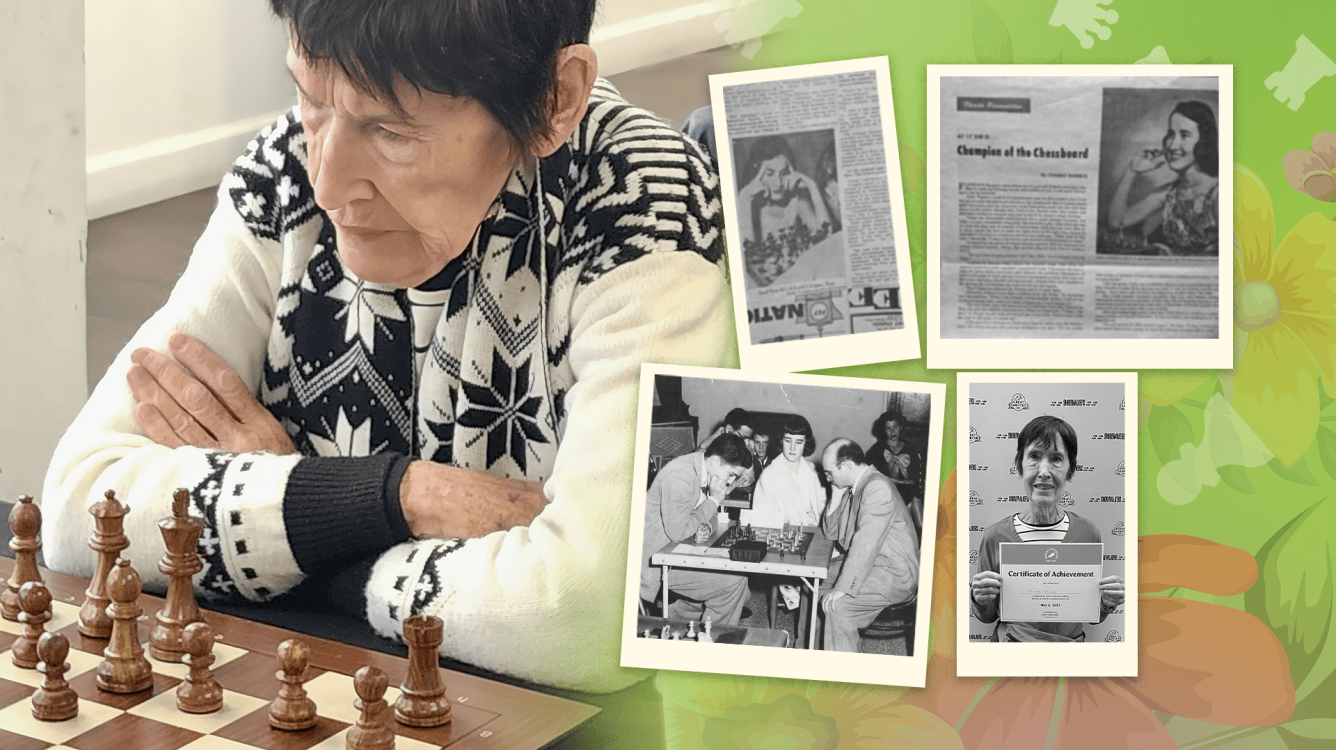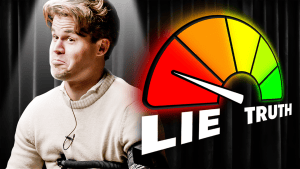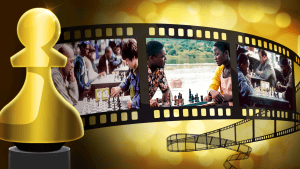
WIM Dolly Teasley Recalls Her Life In Chess
WIM Dorothy “Dolly” Teasley is a chess player with a unique place in the history of chess. She was a former champion for her home state Florida but entered a Fischer-esque disappearance before reemerging in the chess world during the 1960s. I talked to Dolly about being an Olympiad medalist, interactions with champions, and the great women chess players she encountered along her amazing journey.
I heard you learned chess after watching your aunt teach a family member. What happened there?
I wasn't the intended pupil when my aunt Jean was teaching my older brother, but I listened in and thought it sounded like a great game. It just occurred to me that the library might have some books on chess. So I checked out every book they had and they were great!
I learned descriptive notation, played over all the games, and learned rudimentary concepts about the opening, the middlegame, and the endgame. At that point, nobody in my family could beat me. But I didn't know any other chess players. I had no friends or classmates who were players. Just cousins and aunts who were casual kitchen-table chess players. It wasn't until I discovered the Orlando Chess Club that I learned there was a whole national and international chess establishment.
It just occurred to me that the library might have some books on chess. So I checked out every book they had and they were great!
At the club, they were delighted to have a 13-year-old girl, escorted by her aunt, playing chess once a week. A bunch of old men were playing, and I was playing decently well. I was maybe the third or fourth best player in the club. They told me about the United States Chess Federation, Chess Life, and Chess Review of Magazines and encouraged me to enter a tournament in Homestead, Florida. I was 14 or 15. They had a women's tournament and I won it. I also won the Florida Amateur Men and Women's, which was Under-1800 with a perfect 6-0 score, I think.
In another tournament for being the top-scoring girl, I got the U.S. Girls Championship. All of this was around 1955-57. There were three tournaments. Bear in mind, I played just once a week at the chess club with old men. So eventually I just didn't play anymore. But with the help of those books from the library and with some encouragement from the old fellows at the chess club, I had managed to make myself into a Class B player, which is fine.
Did you befriend some players from the U.S. Girls Championship? Was it difficult to keep in touch?
I didn't even know those women until I re-entered the world of chess in my late 20s. I was out of the chess world from about the age of about 17 till 28.

I went to work for IBM in Poughkeepsie, New York, and this was a career change for me. I had been a newspaper reporter and feature writer, but IBM was looking for professional writers with math aptitude, and they were training such people to be tech writers. So they sent us to programming school, and at the end of that I said, "I don't wanna be a tech writer. I wanna be a programmer; I love that."
At lunchtimes, I noticed that all the IBM engineers were playing chess and I was thinking, "Well, gee, I used to be a pretty good player about 10 years ago." So they let me play with them. And pretty soon I became about the second-best player at IBM at that time. The first-best was an engineer named Joe Hornet. He was about an 1800 player. So that's how I got back into the world of chess.
All the IBM engineers were playing chess and I was thinking, well, gee, I used to be a pretty good player about 10 years ago.
Dolly attributes her decade-long hiatus from chess to not having enough girls like her also invested in the game. Even though she did not personally face limitations in her pursuit of learning due to her gender, the scarceness of women and girls in her local chess community did not offer enough motivation to stay in the game. However, since she was deeply engaged in chess and its world since the 1950s, it still gifted her an experience many wouldn't have.
One of her earliest core memories was participating in a simul by GM Samuel Reshevsky.

Teasley encountered not just Reshevsky but the likes of GM Boris Spassky when she traveled to Reykjavik for the Fischer-Spassky World Championship Match in 1972. She has tales of meeting GM Bobby Fischer and having a late-night breakfast with a few chess players, and even brushing shoulders with GM Garry Kasparov.

Teasley talked fondly about her reemergence in the chess world. As her inner fire sparked once more, I had to explore this period of her life and ask...
What was it like to come back to the chess world? And did you feel that you found a richer community with the women in chess?
Absolutely! What happened was I got into chess up in Woodstock, New York, which is near IBM. They had a chess club every Friday night. Bill Goichberg was just starting up his famous tournaments. I would play in every tournament on the weekends in New York or Connecticut or wherever I could. Out of the clear blue sky, I got an invite from the USCF to play in the [U.S.] Women's Invitational Tournament. I was back in the game again.
Out of the clear blue sky, I got an invite from the USCF to play in the [U.S.] Women's Invitational tournament. I was back in the game again.
I played in 1969 in New York City at the old McAlpin Hotel, and did miserably. But after moving a couple of times, I ended up living in Manhattan and hanging out at the Marshall Chess Club and playing speed chess in Washington Square Park. This was the early 70s-Fischer era.
I got better by being around all these good chess players. I played in 1976 in Jackson Hole, Wyoming, and in ‘81 I played in Brigham City, Utah, and in ‘87, Colorado. I finished top three a couple of times. The women who were better than me in the beginning were Gisela K. Grasser, from an older generation, and Diane Savereide, from a younger generation. Throughout the 70's and early-80's, that's where I got to know all the women's chess players. I'm still friendly with a lot of them. During that 15-year period, I was getting invitations every year, but played in only four of them. That was because of work.
You were part of the Olympiad team as well, correct?
In 1978, there was a three-board women's team and an alternate. I was the alternate. Anthony Saidy, who was a very good player, was our captain. I happened to be playing pretty well for some reason. So he played me a lot on board three, and I ended up getting the Olympiad bronze medal for the highest scorer on board three. I think I had 7.5/10. So that was in Buenos Aires for about three weeks. That was terrific.
I ended up getting the Olympiad bronze medal for the highest scorer on board three.
A few years ago, I sent that medal to the chess center in St. Louis. They were trying to get information on the '78 Olympiad.
I played again in ‘88 in Thessaloniki, Greece. Again, I was the fourth player. I also played in ‘98 at the Senior Olympiad. There were 31 women and I came in ninth, which is not so bad. I was very happy about that result.
Dolly has since kept up her chess activity and plays when she can at the Marshall Chess Club. But there's a superpower unrelated to chess that she is pretty proud of: she's an indefatigable walker. "I don't walk fast, but I can walk forever," she says while revealing that she participates in the annual Great Saunter, a 32-mile circumambulation of the island of Manhattan. Last year she participated at the amazing age of 82!

Like chess, walking that long can demand a lot of focus, right?
You know, at some point, the inner battle begins and you realize that nobody else in the world cares whether you continue doing this or not. It's just you.
To conclude, is there anything you wish to see happen for the next generation of girls and women in this game?
They're already doing it. I see all these young girls, and I mean really young, at the Marshall that play so well, getting grandmaster instruction, and playing competitively in the schools. So it's already happening. I think we're going to have a whole generation of terrific women players coming up.








